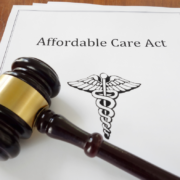NCL urges ACIP to expand RSV vaccine recommendations at April 2025 meeting
Media Contact: Lisa McDonald, Vice President of Communications, 202-207-2829
Washington, DC — This week, the National Consumers League this week strongly recommended expanding respiratory syncytial virus (RSV) vaccines for high-risk adults 50-59 years old to protect against a condition that can become severe for infants and older adults. NCL was selected to make remarks before the critically important Advisory Committee on Immunization Practices ( ACIP) Additionally, NCL encouraged the Committee to continue its work in support of increasing vaccine confidence and transparency for the public. On April 11, 2025, the National Consumers League submitted comments in response to a request for comments at the April 15 and 16 in Atlanta, Georgia.
ACIP also discussed the COVID-19, flu, RSV, and meningococcal vaccines. At the meeting, additional discussion and updates were provided on the ongoing and growing measles outbreaks and cases across the nation. The Committee voted on recommendations for three vaccines, including RSV.
Samantha Sears, NCL’s Health Policy Associate, told the ACIP committee to expand access to RSV and other vaccines and advised that a middle ground, called shared clinical decision-making, has proven too often to result in patients not choosing to get vaccinated, which runs counter to NCL’s support for broader vaccine adoption given the vast data to support the overwhelming safety and efficacy of vaccines in preventing infection disease.
Originally, ACIP was scheduled to meet in February, but the meeting was indefinitely postponed after the confirmation of the Secretary of the US Department of Health and Human Services, Robert F. Kennedy, Jr. NCL is pleased that the Secretary rescheduled this meeting and hopes that the remaining two meetings of ACIP in 2025 will continue as scheduled.
The Advisory Committee on Immunization Practices (ACIP), comprising fifteen medical and public health experts, is charged with advising the CDC Director on the use of vaccines and the immunization schedules for adults and children. ACIP meets regularly to review data, studies, and proposals for vaccines and, as needed, for emergency cases. Meetings are open to the public and, since COVID, streamed online. The recordings of the livestream of the April 15 and April 16 meetings are available online.
###
About the National Consumers League (NCL)
The National Consumers League, founded in 1899, is America’s pioneer consumer organization. Our mission is to protect and promote social and economic justice for consumers and workers in the United States and abroad. For more information, visit www.nclnet.org.
























